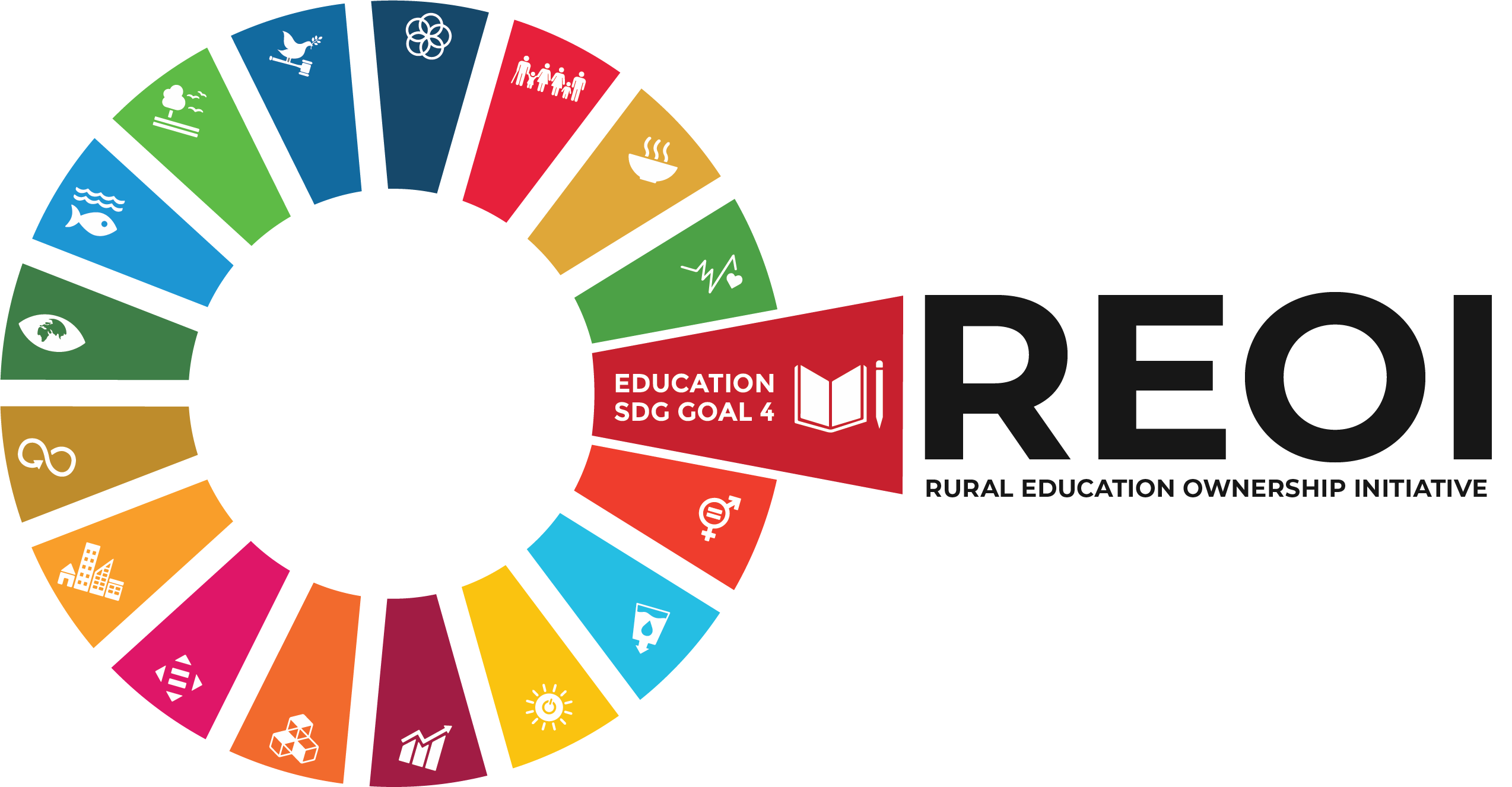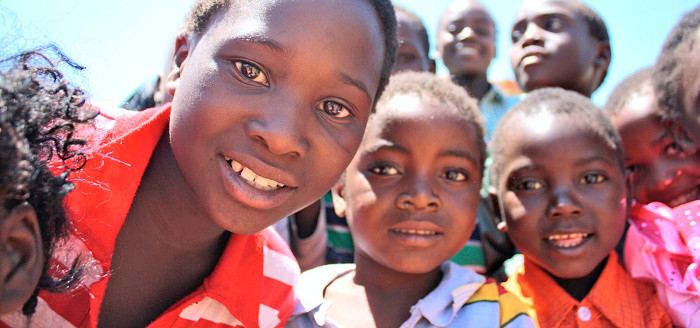


Executive Summary
The Rural Education Ownership Initiative (REOI) by CDS Africa is an advocacy program that aims to boost infrastructure investments and learning outcomes of rural school students in line with Sustainable Development Goal Four (SDG 4), targets 4.1 and 4.2, and article 36 clause 2(d) of the 1992 Constitution of Ghana.
The Initiative was developed after an in-depth examination of available EMIS Data, NaSIA Inspection Reports, focus groups, and observations during our travels across the country. We identified three main obstacles to rural education: inadequate infrastructure, lack of teacher motivation, and subcultural norms that hinder local beliefs. Of these obstacles, insufficient infrastructure and lack of targeted incentive schemes for rural teachers are well-known factors for rural pupils lagging behind their urban counterparts.
The third obstacle is what we refer to as the "shock factor," which encompasses subcultural norms that act as inhibitors of education and have persisted for decades. Surprisingly, these inhibitors continue to affect education even after several years.
We have developed a three-pronged approach to address the problems facing rural education. Our approach includes Education Awareness, Education Support, and Rural Education Infrastructure Advocacy. We intend to implement these modules through an active partnership with rural communities, governments, and organizations that share our interest in rural education or education in general. Rural community stakeholders and the government are indispensable in implementing REOI and play crucial roles.
We believe that for the REOI to be successful, rural actors must lead and take ownership of the Initiative. On the other hand, the government has a dual mandate to improve rural education. The mandates include the government's commitment to executing SDG 4 and the provisions of Article 36, Clause 2 (d) of the 1992 Constitution of Ghana. Although successive governments have made significant investments in education, the current status of rural education indicates that more needs to be done. We are confident that collaboration to implement REOI will yield better outcomes for rural students.
Rural Education Ownership Initiative
The Rural Education Ownership Initiative (REOI) is a critical advocacy initiative conceived by the Africa Center for Democracy and Socio-economic Development (CDS Africa) to advocate for rural education in Ghana. The Initiative aims to advocate infrastructure investments and improved outcomes for rural basic school pupils in line with Sustainable Development Goal Four (SDG 4) and Article 36 Clause 2(d) of the 1992 Constitution of Ghana. There is a need for policy focus to cater to the peculiar problems that militate rural education in Ghana.
Governments have made commendable interventions to bridge the gap between rural and urban education; however, the inequality between what seems like a story of two worlds remains and has grave effects on the rural child. The National School Feeding Program (NSFP) and the Ghana Accountability for Learning Outcomes Project (GALOP) are examples of pro-rural policy interventions thus far. The NSFP provides daily hot meals for pupils in public schools, while the GALOP is investing about $219 million to improve education in low-performing primary schools in all districts across the country.
The REOI derives inspiration from SDG Goal 4, namely, 4.1 and 4.2:
Target 4.1 ensures that all girls and boys complete free, equitable, and quality primary and secondary education, leading to relevant and effective learning outcomes.
Target 4.2 ensures that all girls and boys have access to quality early childhood development, care, and pre-primary education so they are ready for primary education.
The Initiative has three advocacy planks: Education Awareness Promotion, Education Support Center, and Rural Education Infrastructure Investment. We will implement the first two planks in collaboration with rural communities to ensure equitable learning opportunities and outcomes for all pupils.
REOI is a necessary advocacy effort to highlight the challenges with rural education and recommendations to improve outcomes. It is time to prioritize rural education and ensure that all pupils succeed academically, regardless of whether they attend a rural or non-rural school.
The issue of rural basic schools and pupils being left behind is a pressing concern that demands immediate attention. Despite the mandate of Article 36 Clause 2(d), which obligates governments to ensure balanced rural-urban development, there has been a noticeable lack of parity in educational investment.
The situation is alarming, with the poor state of rural schools manifesting in various symptoms such as the increasing number of street children, street vending, and head porterage (kaya ye). These are all clear indications of the dire situation in which rural children find themselves. Many of these children have been forced to migrate to cities for jobs, so they miss out on education.
The REOI initiative results from thorough observations, EMIS data analysis, and focus group discussions with pupils, teachers, parents, and opinion leaders. These discussions highlighted several issues that we have grouped into three main categories: poor infrastructure, lack of teacher motivation and retention, and inhibiting local precepts and anecdotes.
While the problems of inadequate infrastructure and teacher motivation are well-known, the precepts and anecdotes participants shared as factors hindering school attendance in rural communities were eye-opening. For example, participants stated that "education is for the rich and people in the cities" and shared stories of girls dropping out of school because of the belief that "education or schooling hurts girls' chances to get husbands."
These interactions have demonstrated that rural education's challenges are complex and require sustained effort to improve conditions. We must consider the diverse perspectives of those involved and make sure that we tailor our solutions to fit their unique circumstances. By addressing the underlying causes of poor attendance, we can help ensure that every child has access to education and the opportunity to reach their full potential.
The Rural Education and Ownership Initiative (REOI) is a targeted initiative to improve learning opportunities for rural pupils by advocating continual infrastructure investments, tailored policy approaches, and community ownership of education. The Initiative has specific objectives linked directly to its three modules, each designed to bring about lasting change.
The first objective is to promote education awareness, which is crucial in rallying support and resources for rural education. The second objective is to facilitate the establishment of an after-school learning and resource center that will provide vital support to pupils, teachers, and the community. The third objective is to advocate policy adaptation, infrastructure development, and associated education improvement measures to ensure inclusive and equitable learning opportunities for rural pupils.
The REOI is designed to bridge the gap between urban and rural education by empowering rural pupils to reach their full potential. The program aims to transform the lives of rural pupils and their communities by providing access to quality education. The REOI initiative is poised to impact the future of rural education significantly.
The REOI Initiative has three measures.
Community Awareness Campaign
Objective: To undertake community engagements to create awareness about the importance of education.
There are two dimensions:
Objective: Facilitate the establishment of an after-school learning and resource center to support pupils, teachers, and rural communities to improve education outcomes.
ESC requires partnerships with the government, international organizations, and charities for successful implementation. The implementation will leverage the communal spirit of rural communities to cut costs. Implementing this resource center will contribute directly to alleviating rural learning poverty.
The Center will provide the following —
Engage governments and stakeholders, including teachers, teacher unions, parents, chiefs, and community opinion leaders, to improve rural education through policy targeting and infrastructure investment to improve education outcomes. Education infrastructure advocacy aims to urge governments to fulfill their responsibilities under Article 36 Clause 2(d) and SDG Goals.
Activities include —
The funding and execution of the Initiative will be facilitated by various means such as fundraising activities, grants, community labor, and resource mobilization, as well as partnerships with international organizations, MDAs, and private enterprises.
We will evaluate our accomplishments based on the following general criteria:
Monitoring and evaluation are crucial for the success of the REOI initiative. We will generate yearly evaluation reports to share with our partners, including MDAs, media, and stakeholders. To enhance community participation, we will organize regular community durbars to review and increase community involvement.
The SDGs are set to be completed in eight years (by 2030). To ensure that underserved rural schools in Ghana are not left behind, this Initiative aims to extend the impact of SDGs and to lobby political parties or governments' operationalization of Article 36 Clause 2(d). Through advocacy, we want to create significant momentum to inspire substantial investment in rural education and address the imbalance.
Subscribe and get regular updates

Click the link below to join Our WhatsApp group for daily brief on current trends in the country.

What does Democracy mean to you??
Join us in the conversation on Friday 8th March, 2024 at the Block “C” Conference Room, Wisconsin International University College School.

What does Democracy mean to you??
Join us in the conversation on Friday 31st May, 2024 at the Cedi Conference Hall, University of Ghana - Legon.